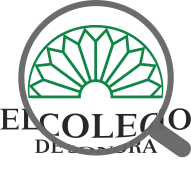Paternities’ Transformation? Being a Father in Culiacán, Sinaloa, in Times of Confinement and Health Crisis
¿Paternidades en transformación? Ser padre en Culiacán, Sinaloa, en tiempos de confinamiento y crisis sanitaria
| dc.contributor.author | Páez Ramírez, Iván | |
| dc.contributor.author | Zúñiga Elizalde, Mercedes | |
| dc.coverage.spatial | MX-SON | |
| dc.coverage.spatial | MX-SON | en-US |
| dc.creator | Páez Ramírez, Iván | |
| dc.creator | Zúñiga Elizalde, Mercedes | |
| dc.date | 2021-11-16 | |
| dc.date.accessioned | 2022-06-28T19:43:12Z | |
| dc.date.available | 2022-06-28T19:43:12Z | |
| dc.date.issued | 2021-11-16 | |
| dc.identifier | https://regionysociedad.colson.edu.mx:8086/index.php/rys/article/view/1502 | |
| dc.identifier | https://doi.org/10.22198/rys2021/33/1502 | |
| dc.identifier.uri | https://repositorio.colson.edu.mx/handle/2012/46075 | |
| dc.description | Objective: to examine the paternity practices of some parents from Culiacán, Sinaloa, to analyze their participation in domestic and care work during confinement due to the health emergency of the SARS-CoV-2 virus, and the fissures that this would or would not generate in the sexual distribution of work. Methodology: ten interviews were conducted reaching different ages fathers who live with their partner and their children in dual-income households. Results: the changes in fatherhood behavior are observed in middle-aged fathers. They increased their participation in housework, care and school tutoring. Limitations: inequalities in the responsibilities of women and men at home and the prolongation of the pandemic over time make it difficult to notice the real benefits and consequences of parental housework and care. Value: the investigation contributes to expose fathers’ participation during the pandemic and whether or not it re-signified or not their paternity. Conclusions: the bond with the children intensified during confinement and there was a greater expression of affection towards them, although not in all cases meant a benefit in the distribution of responsibilities among the couple. | en-US |
| dc.description | Objetivo: examinar las prácticas de paternidad de algunos padres de Culiacán, Sinaloa, para analizar su participación en el trabajo doméstico y de cuidado durante el confinamiento por la emergencia sanitaria del virus SARS-CoV-2, y las fisuras que ésta generaría o no en la distribución sexual del trabajo. Metodología: se realizaron diez entrevistas a padres de diferentes edades que cohabitan con su pareja e hijos e hijas en hogares de doble ingreso. Resultados: los cambios en la paternidad se observaron en los padres de mediana edad, quienes incrementaron su participación en labores domésticas, de cuidado y de apoyo escolar. Limitaciones: las desigualdades en las responsabilidades de mujeres y hombres en el hogar y la prolongación de la pandemia impiden ver los beneficios y las consecuencias reales del ejercicio paterno. Valor: se contribuye a exponer la participación de los padres durante la pandemia y si ésta resignificó o no su paternidad. Conclusiones: el vínculo con las hijas y los hijos se intensificó durante el confinamiento y hubo mayor expresión de afecto para con ellas y ellos, aunque no en todos los casos significó un beneficio en la distribución de las responsabilidades entre la pareja. | es-ES |
| dc.description.abstract | Objective: to examine the paternity practices of some parents from Culiacán, Sinaloa, to analyze their participation in domestic and care work during confinement due to the health emergency of the SARS-CoV-2 virus, and the fissures that this would or would not generate in the sexual distribution of work. Methodology: ten interviews were conducted reaching different ages fathers who live with their partner and their children in dual-income households. Results: the changes in fatherhood behavior are observed in middle-aged fathers. They increased their participation in housework, care and school tutoring. Limitations: inequalities in the responsibilities of women and men at home and the prolongation of the pandemic over time make it difficult to notice the real benefits and consequences of parental housework and care. Value: the investigation contributes to expose fathers’ participation during the pandemic and whether or not it re-signified or not their paternity. Conclusions: the bond with the children intensified during confinement and there was a greater expression of affection towards them, although not in all cases meant a benefit in the distribution of responsibilities among the couple. | en-US |
| dc.description.abstract | Objetivo: examinar las prácticas de paternidad de algunos padres de Culiacán, Sinaloa, para analizar su participación en el trabajo doméstico y de cuidado durante el confinamiento por la emergencia sanitaria del virus SARS-CoV-2, y las fisuras que ésta generaría o no en la distribución sexual del trabajo. Metodología: se realizaron diez entrevistas a padres de diferentes edades que cohabitan con su pareja e hijos e hijas en hogares de doble ingreso. Resultados: los cambios en la paternidad se observaron en los padres de mediana edad, quienes incrementaron su participación en labores domésticas, de cuidado y de apoyo escolar. Limitaciones: las desigualdades en las responsabilidades de mujeres y hombres en el hogar y la prolongación de la pandemia impiden ver los beneficios y las consecuencias reales del ejercicio paterno. Valor: se contribuye a exponer la participación de los padres durante la pandemia y si ésta resignificó o no su paternidad. Conclusiones: el vínculo con las hijas y los hijos se intensificó durante el confinamiento y hubo mayor expresión de afecto para con ellas y ellos, aunque no en todos los casos significó un beneficio en la distribución de las responsabilidades entre la pareja. | es-ES |
| dc.format | application/pdf | |
| dc.format | text/xml | |
| dc.language | spa | |
| dc.language.iso | spa | |
| dc.publisher | El Colegio de Sonora | es-ES |
| dc.relation | https://regionysociedad.colson.edu.mx:8086/index.php/rys/article/view/1502/1793 | |
| dc.relation | https://regionysociedad.colson.edu.mx:8086/index.php/rys/article/view/1502/1794 | |
| dc.rights | Derechos de autor 2021 Iván Páez Ramírez, Mercedes Zúñiga Elizalde | es-ES |
| dc.rights | https://creativecommons.org/licenses/by-nc/4.0/ | es-ES |
| dc.rights | info:eu-repo/semantics/openAccess | es-ES |
| dc.source | 2448-4849 | |
| dc.source | 1870-3925 | |
| dc.source | región y sociedad; Vol. 33 (2021): Rolling Pass; e1502 | en-US |
| dc.source | región y sociedad; Vol. 33 (2021): Publicación continua; e1502 | es-ES |
| dc.subject | Ciencias Sociales | |
| dc.subject | Fatherhood | en-US |
| dc.subject | Domestic work | en-US |
| dc.subject | Care work | en-US |
| dc.subject | Gender-based labor division | en-US |
| dc.subject | Sinaloa| | en-US |
| dc.subject | Paternidad | es-ES |
| dc.subject | Trabajo doméstico | es-ES |
| dc.subject | Trabajo de cuidados | es-ES |
| dc.subject | División sexual del trabajo | es-ES |
| dc.subject | Sinaloa | es-ES |
| dc.subject.lcsh | Fatherhood | en-US |
| dc.subject.lcsh | Domestic work | en-US |
| dc.subject.lcsh | Care work | en-US |
| dc.subject.lcsh | Gender-based labor division | en-US |
| dc.subject.lcsh | Sinaloa| | en-US |
| dc.subject.lcsh | Paternidad | es-ES |
| dc.subject.lcsh | Trabajo doméstico | es-ES |
| dc.subject.lcsh | Trabajo de cuidados | es-ES |
| dc.subject.lcsh | División sexual del trabajo | es-ES |
| dc.subject.lcsh | Sinaloa | es-ES |
| dc.title | Paternities’ Transformation? Being a Father in Culiacán, Sinaloa, in Times of Confinement and Health Crisis | en-US |
| dc.title | ¿Paternidades en transformación? Ser padre en Culiacán, Sinaloa, en tiempos de confinamiento y crisis sanitaria | es-ES |
| dc.type | info:eu-repo/semantics/article | |
| dc.type | info:eu-repo/semantics/publishedVersion | |
| dc.audience | generalPublic | |
| dc.identificator | 5 |
Files in this item
| Files | Size | Format | View |
|---|---|---|---|
|
There are no files associated with this item. |
|||










